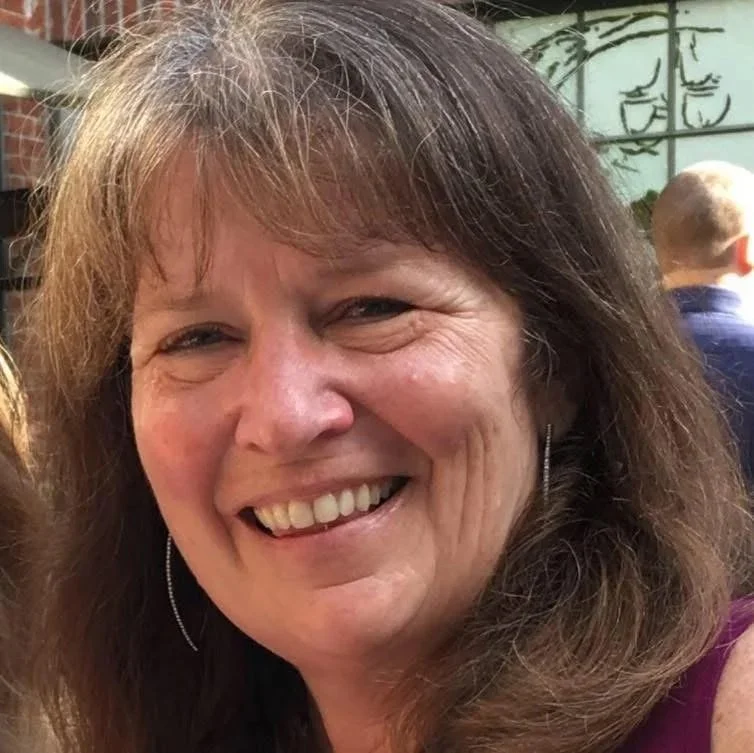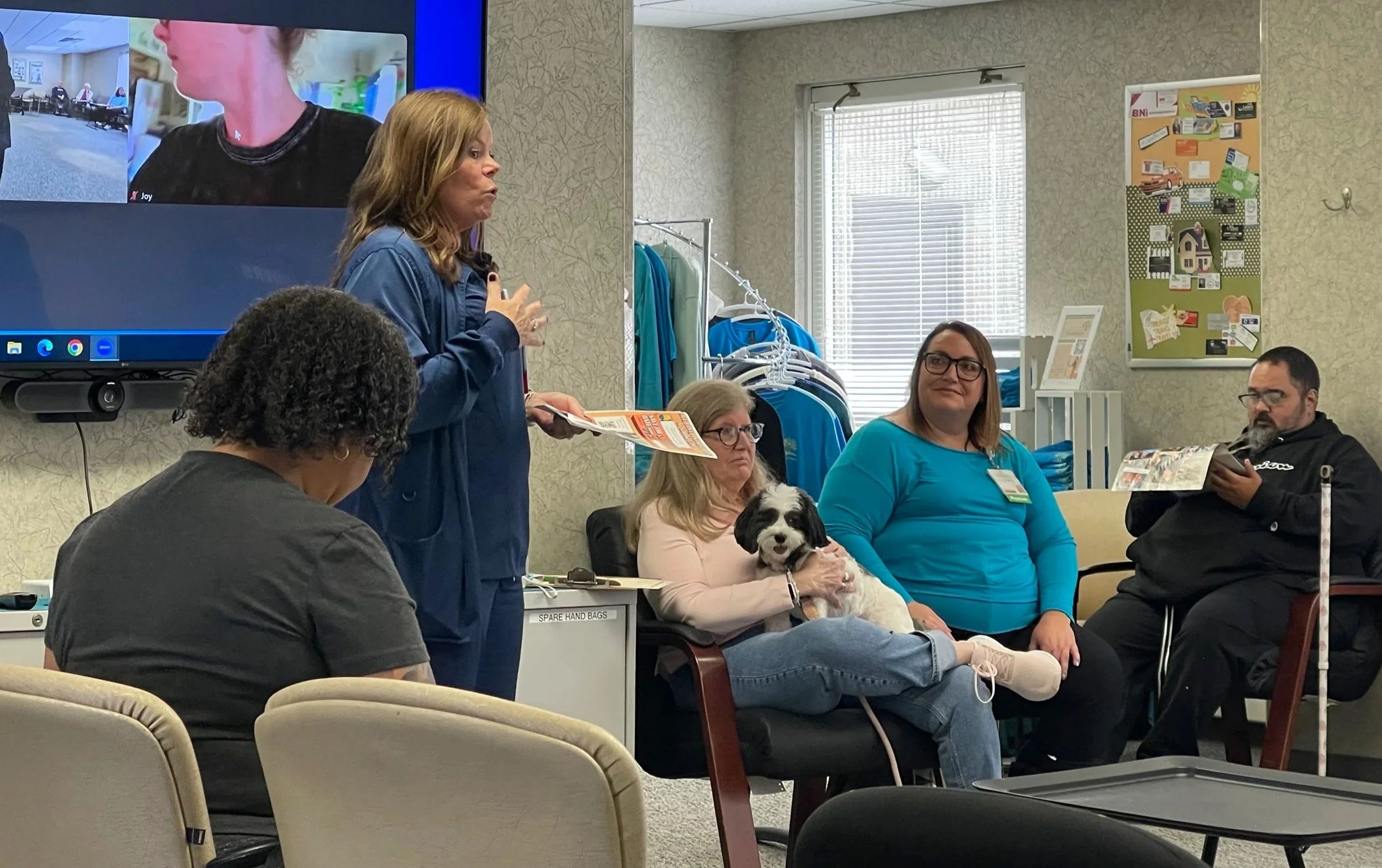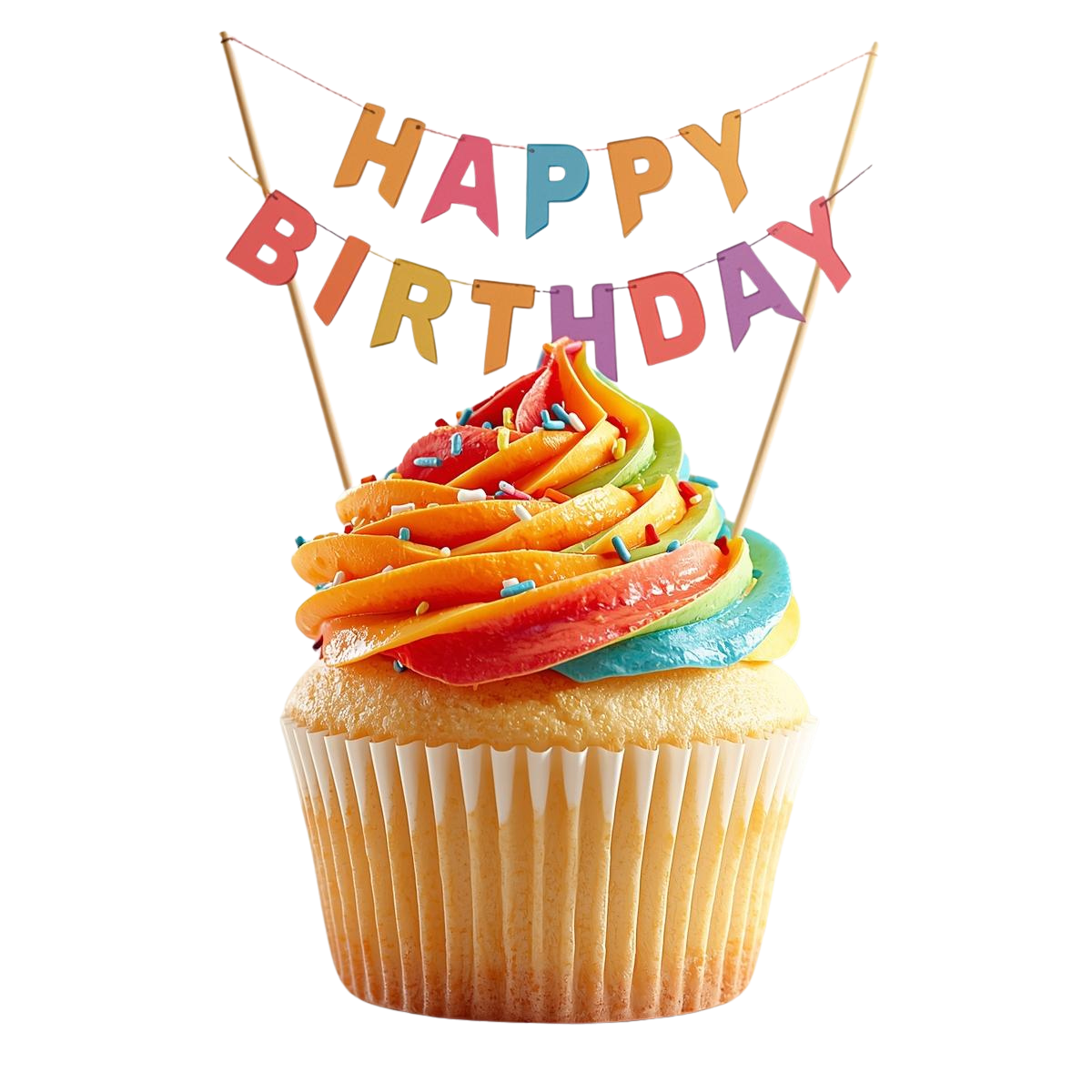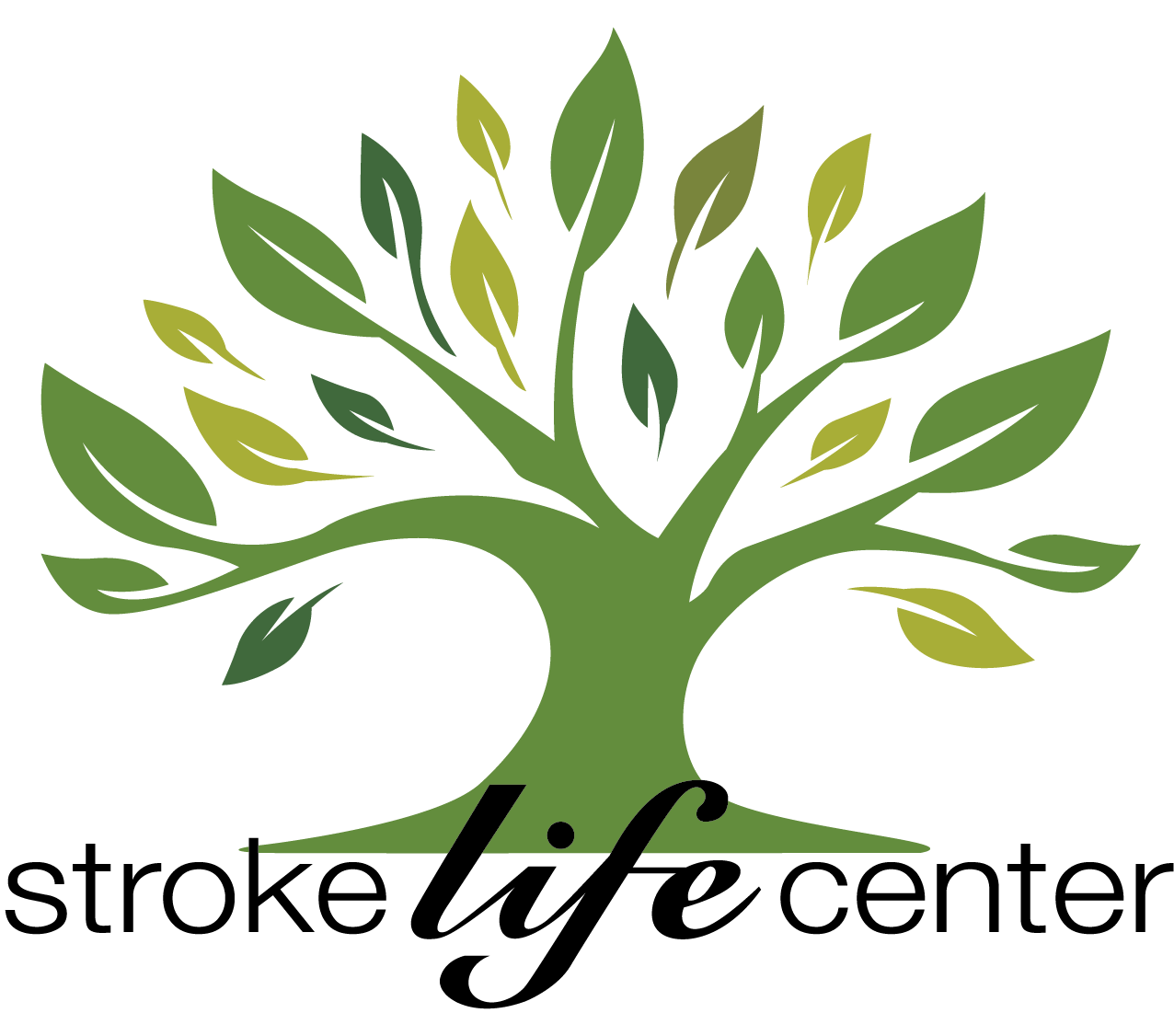Newsletter - September 2025
Director’s Corner
Cindy Roshon, Stroke Life Center Co-Founder, Executive Director
Hope in Action: Building Community, One Step at a Time
Dear Friends,
At the Stroke Life Center, we know that healing is not a destination—it’s a journey we walk together. Each month, I’m reminded of the power that comes when survivors, caregivers, volunteers, and community partners join to share stories, celebrate progress, and lift one another up. This issue of our newsletter is filled with reminders that hope is alive and thriving here.
Two important opportunities are coming soon to help sustain our mission:
September 25, 2025 – Euchre Tournament Fundraiser
An evening of cards and camaraderie honoring two beloved survivors who were faithful tournament attenders. Their legacy of resilience and fellowship will be felt at every table.November 6, 2025 – “Thriving Like a Star” Gala
Our premier evening of dinner, dancing, and a dazzling silent auction at Hilton Garden Inn, Levis Commons.
These are more than just events—they are lifelines. Every ticket, every sponsorship, and every auction item ensures that our programs remain free for survivors and caregivers. Please mark your calendars and join us in making these nights truly impactful.
Inside this issue, you’ll meet Elly Clark, our dedicated volunteer speech-language pathologist, whose compassion shows how healing often begins with a simple conversation. You’ll also learn about the vital role speech therapy plays in recovery, from rebuilding language skills to restoring confidence.
We’re also celebrating the joy of community: our laughter-filled Mud Hens game outing, the creativity sparked during art therapy decoupage, and the expertise shared by Dr. Stacey Hoffman and Julie Goins-Whitmore, who introduced our members to new therapies and Stroke Camp—a retreat for rest, renewal, and connection.
As you read, I hope you’ll see what I see every day: lives transformed through care, creativity, and community. None of this would be possible without your support. Whether you attend an event, donate to our auction, or simply share our mission with a friend, you are helping us put hope into action.
With gratitude,
Cindy Roshon
Co-Founder, Executive Director
Weekly Calendar
Mondays: Aqua Aerobics, 10:30 AM, NOMS 3130 Central Park West, Toledo, OH
Tuesdays: 2nd and 4th, PT with Angela, SLC, 1:00 PM
Dinner Night, , 6:00 PM
Destination:
Note: The Day has changed to a Tuesday!
Wednesdays: Stroke Support Group 1:00 PM – 2:30
Thursdays: Friendship Bench with Jennifer Lamping 11:00-1:30
Thursdays: ROTATING ACTIVITY AFTERNOONS 1-3
Movie Day 1:00, SLC
Game Day 1:00, SLC
Art with Noralyn 1:00, SLC
9/25 Euchre Tournament - To learn more or register visit www.stokelifecenter.org
SLC Spotlight : Eleanor Hulme Clark -Speech-Language Pathologist and Volunteer at Stroke Life Center
Elly Clark: Bringing hope, healing, and a voice to stroke survivors at the Stroke Life Center.
“Sometimes the best therapy isn’t an exercise—it’s a conversation.” – Elly Clark, Speech-Language Pathologist & Volunteer
At the Stroke Life Center, we believe every story of resilience is worth celebrating. This month, we shine our spotlight on one of our dedicated volunteers, Eleanor Hulme Clark—known warmly as Elly—a speech-language pathologist whose journey reflects both professional expertise and personal compassion.
“I am so incredibly thankful for the opportunity to serve with the Stroke Life Center,” Elly shared. “I’ve been inspired by the people I’ve met and the stories I’ve heard so far. My hope is to make a difference and contribute to this amazing and encouraging community.”
A Path Rooted in Service
Born in Toledo and raised in Swanton, Ohio, Elly pursued both undergraduate and graduate studies at the University of Toledo, earning her master’s in speech-language pathology in 2007. Her career began at Wood County Hospital, where she spent eight years in outpatient rehabilitation with both adults and children. It was there she honed her clinical skills and developed a specialty in augmentative alternative communication—helping those with severe communication challenges, such as aphasia and dysarthria, find their voices through technology and creative solutions.
Her career journey later led her to Trilogy Health Services, where she has spent nine years in long-term care, assisted living, and skilled rehab settings. Alongside her professional path, she has embraced her role as a wife and mother of three, homeschooling her daughters while continuing to practice on a contingency basis.
It was through her family’s connection with DanceFam Ballroom & Latin Studio that Elly first attended the Thriving Like a Star Gala—her introduction to the Stroke Life Center community.
The Heart of a Therapist
For Elly, therapy is not just about clinical techniques—it’s about partnership.
“As a therapist, my role is to walk alongside survivors and their families as they pursue their goals and dreams,” she explained. “Sometimes the best therapy isn’t just an exercise or device—it’s a good conversation. Listening, reflecting, and honoring the emotional journey after a stroke is just as important as the therapy itself.”
Her philosophy is one of hope in action: using creative problem-solving, evidence-based practice, and heartfelt compassion to help survivors find joy, independence, and purpose.
A Story of Courage
One of Elly’s most unforgettable experiences was working with a woman who had suffered two strokes, the second of which left her unable to speak or eat normally. Together, they navigated years of challenges, from transitioning off a feeding tube to securing a speech-generating device that transformed her independence.
“This patient’s resilience was extraordinary,” Elly recalled. “With the device, she could once again call her family, her friends—and even 911 if needed. That technology restored her voice and gave her the ability to live safely and independently. She was private about her struggles in public, but at home, she was once again the talkative, loving mother and grandmother her family cherished. I will never forget her courage and humor in the face of incredible challenges.”
Breaking Misconceptions
Elly also works to dispel a common myth: that speech therapy is only effective in the first year after a stroke.
“Recovery is not a straight line,” she said. “Speech therapy can be beneficial at any stage and for any level of impairment—from mild word-finding issues to profound communication loss. Sometimes therapy is about restoring what was lost, but other times it’s about learning new strategies and tools to move forward.”
A Partner in Resilience
Elly’s story reflects the spirit of the Stroke Life Center itself: resilience, creativity, and community. Every survivor’s journey is unique, but with compassion, innovation, and the right support, survivors can thrive well beyond rehabilitation.
We are deeply grateful for Elly’s dedication and passion—and for reminding us that even in life’s most difficult chapters, the human spirit can find new ways to speak, connect, and shine.
What Is Speech Therapy?
Speech therapy, also called speech-language pathology, is a specialized field of rehabilitation that helps people improve their ability to communicate and swallow. For stroke survivors, a speech-language pathologist (SLP) works on more than just “speech.” Therapy may involve retraining the brain to understand and produce language, strengthening the muscles needed for speaking and swallowing, and teaching strategies for clearer communication. It can also include cognitive-communication skills such as memory, attention, and problem-solving—all of which may be impacted by stroke.
How Does Speech Therapy Benefit a Stroke Survivor?
A stroke can disrupt the brain’s communication pathways, leading to conditions such as:
Aphasia – difficulty understanding or expressing language.
Dysarthria – slurred or weak speech due to muscle weakness.
Apraxia of speech – difficulty planning and coordinating the movements needed for speaking.
Dysphagia – swallowing difficulties, which can affect safety and nutrition.
Alexia – difficulty reading, often described as “word blindness,” where survivors may struggle to recognize written words or comprehend text.
Dyscalculia – difficulty with mathematical concepts such as numbers, calculations, or sequencing, which may affect everyday tasks like handling money, telling time, or managing schedules.
Speech therapy directly addresses these challenges in several ways:
Restores Communication Skills
Therapy exercises strengthen language comprehension, word retrieval, and sentence building. Survivors relearn how to express their thoughts and connect with others.Improves Clarity and Confidence
Muscle exercises and speech drills enhance pronunciation, volume, and fluency, helping survivors feel more confident in conversations.Supports Swallowing Safety
Specialized swallowing exercises reduce choking risks, making eating and drinking safer and more enjoyable.Builds Cognitive-Communication Skills
Therapy helps with memory, attention, and problem-solving—skills often needed for independence at home and in the community.Enhances Emotional and Social Well-Being
Regaining the ability to communicate lessens frustration and isolation, restoring dignity and helping survivors reconnect with loved ones.
In short, speech therapy gives stroke survivors their voice back—literally and figuratively. It empowers them to share their needs, thoughts, and emotions, which is essential not only for recovery but also for quality of life.
Exploring New Options: Dr. Stacey Hoffman on Botox and Physical Therapy
This month, Stroke Life Center participants heard from Dr. Stacey Hoffman, a physician specializing in Physical Medicine and Rehabilitation with Mercy Health, who presented on the benefits of combining Botox treatments with physical therapy to reduce muscle tightness in the hands.
Dr. Hoffman explained spasticity, a common condition after stroke in which muscles become stiff, overactive, and difficult to control. Spasticity often affects the hands, making everyday tasks like writing, eating, or even opening and closing the hand a challenge.
Botox, best known for its cosmetic use, also has important medical applications. When injected with precision, it relaxes overactive muscles, reducing stiffness and improving range of motion. But as Dr. Hoffman emphasized, Botox is not a stand-alone solution—it works best when paired with consistent physical therapy, which retrains the muscles, builds strength, and promotes more natural movement.
For survivors, this combination can mean greater comfort, improved hand function, and a renewed sense of independence. For caregivers, it can ease the daily challenges of assisting with tasks impacted by hand tightness.
The presentation sparked thoughtful discussion and offered encouragement to participants exploring new tools for recovery. It also underscored the value of the Stroke Life Center’s partnership with Mercy Health in connecting survivors to cutting-edge care and support.
Stroke Life Center Welcomes Mercy Health Guests to Share Stroke Camp Opportunity
The Stroke Life Center recently hosted Julie Goins-Whitmore, Neuroscience Program Manager at Mercy Health St. Vincent Medical Center, along with Dr. Stacey Hoffman, physician of Physical Medicine and Rehabilitation with Mercy Health. Together, they introduced members to an upcoming opportunity designed specifically for survivors and caregivers: Stroke Camp, scheduled for October 1–3 at Maumee Bay State Park.
What is Stroke Camp?
Stroke Camp is a weekend retreat created to give stroke survivors and caregivers a chance to relax, recharge, and connect with others who truly understand their journey. Camps are held nationwide, blending therapy-inspired activities, educational sessions, and recreational fun—all within a supportive, encouraging environment. Interested in attending? Learn more and register at www.strokecamp.org
For many, it’s a rare break from daily routines. Survivors gain inspiration from hearing stories of resilience, while caregivers find both respite and meaningful peer support.
Why It Matters
Recovery doesn’t end when formal therapy does. Programs like Stroke Camp remind participants that healing is a lifelong journey supported by community as much as by medical care. Friendships formed during those three days often extend well beyond the camp, creating lasting connections.
This year’s theme—“Peace, Love, and Recovery”—promises a joyful atmosphere that celebrates progress and hope. From group activities to campfire conversations, participants will leave Maumee Bay refreshed, encouraged, and strengthened by a sense of belonging.
For more information about Stroke Camp, contact Julie Goins-Whitmore at julie_goins@mercy.com. To register, visit www.strokecamp.org.
Turning recovery into resilience — and survivors into thrivers.
No fees. No barriers. Just support.
SAVE THE DATE
Euchre Tournament – Sept. 25, 2025
Join us for a night of fun, prizes, and community in loving memory of Kenneth F. and Marge M.
St. Anne’s Hospital | Doors 5 PM | Play 6 PM
Cash Prizes • 50/50 Raffle • Raffle Prizes
Beginner’s Table – no experience needed!
$30 Donation – Light dinner & snacks included.
Sponsored by BNI Platinum Partners in support of the Stroke Life Center and fellow BNI partner Mike M (Marge’s son).
Thriving Like a Star 2025
Thursday, November 6, 2025
Hilton Garden Inn, Levis Commons
Cocktails & Silent Auction at 5:00 PM
Dinner & Dancing to Follow
Presented by Mercy Health, brought to life by DanceFam Ballroom & Latin Studio, and covered by our media partner 13abc.
Buy your tickets now — mark your calendars!
Sponsorship opportunities now available.
We are also gratefully accepting silent auction donations. Your contribution will help us create an exciting auction lineup while directly supporting stroke survivors and caregivers.
Stay tuned for dancer announcements and ways to vote for your favorite!
Every ticket, every sponsorship, every dance step supports stroke survivors and caregivers — at no cost to them.
Building Community at the Mud Hens Game
Rain clouds and a delayed start didn’t dampen the spirit of Stroke Life Center survivors, caregivers, and friends who gathered for a night at the Toledo Mud Hens game. While attendance was smaller than hoped, those who came enjoyed the comfort of the sheltered seating and, even more importantly, the chance to connect with one another outside the walls of the Center.
The Mud Hens may not have brought home a win, but the evening was still a success in the ways that matter most. Laughter, conversation, and shared experiences turned the ballpark into a place of belonging. Survivors cheered alongside caregivers and supporters, strengthening the bonds that carry them through recovery and daily life.
Moments like these remind us that building community isn’t about the scoreboard—it’s about the friendships, support, and joy found in being together. Rain or shine, the Stroke Life Center team knows how to make the best of every inning.
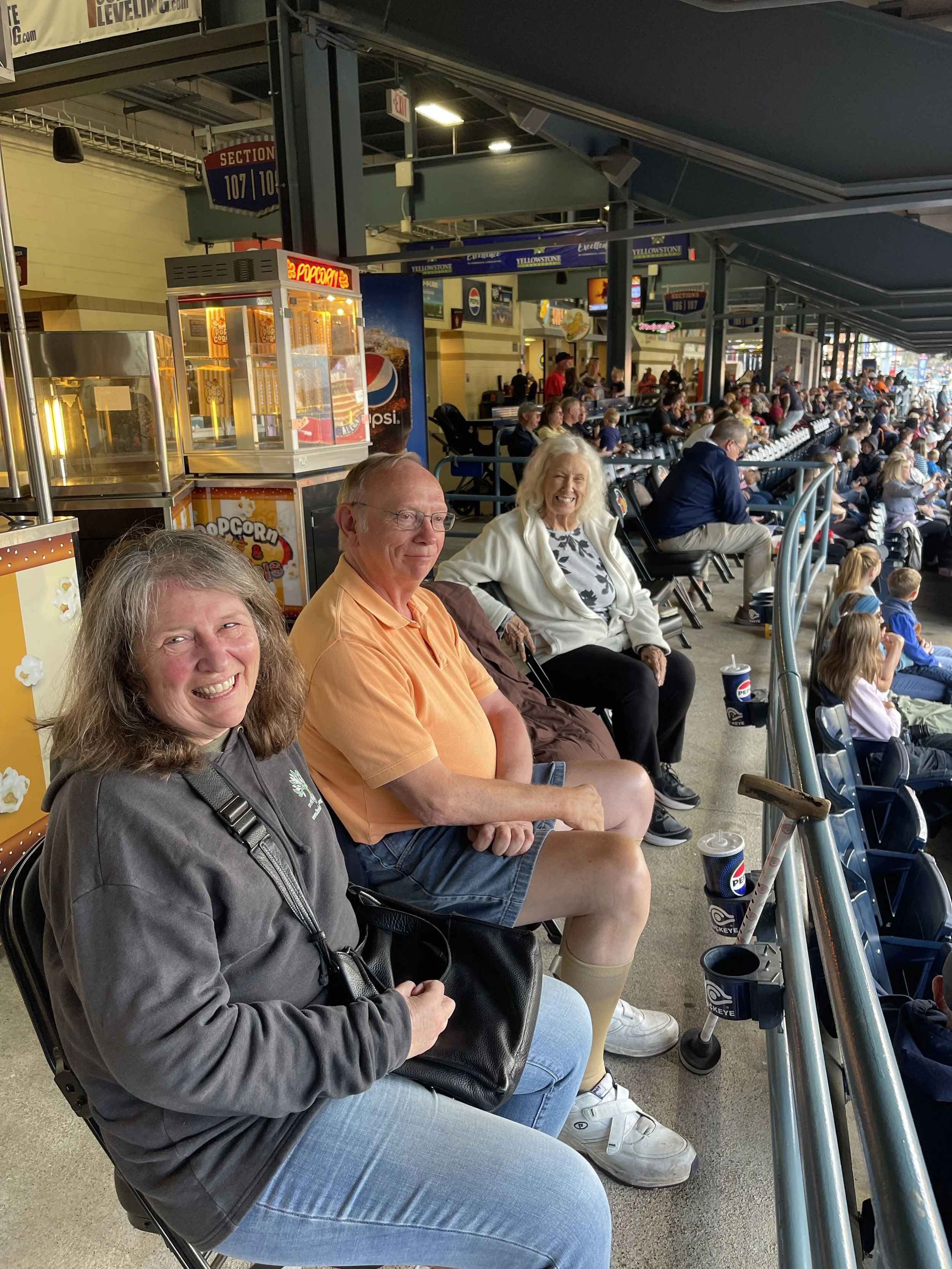
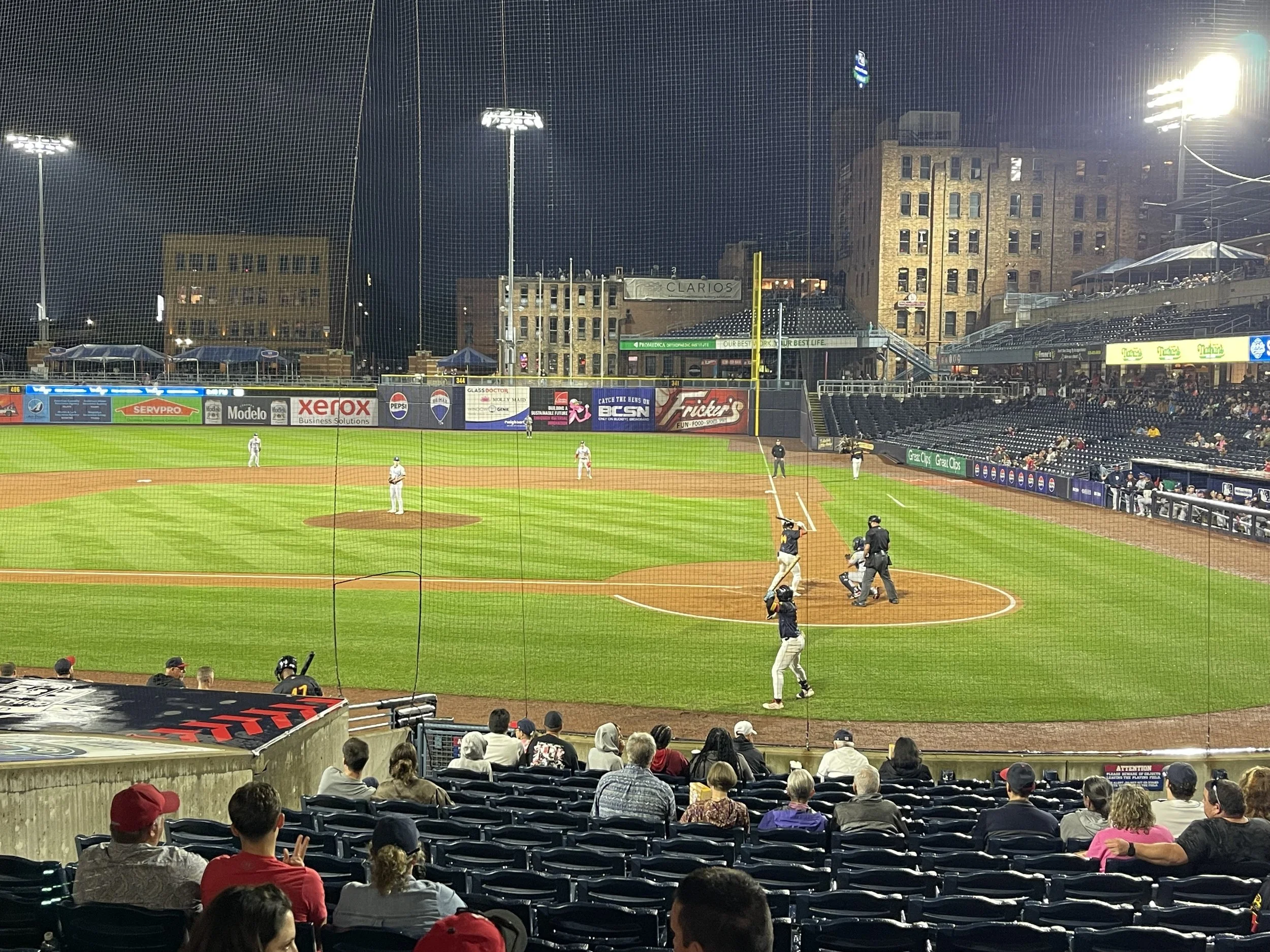
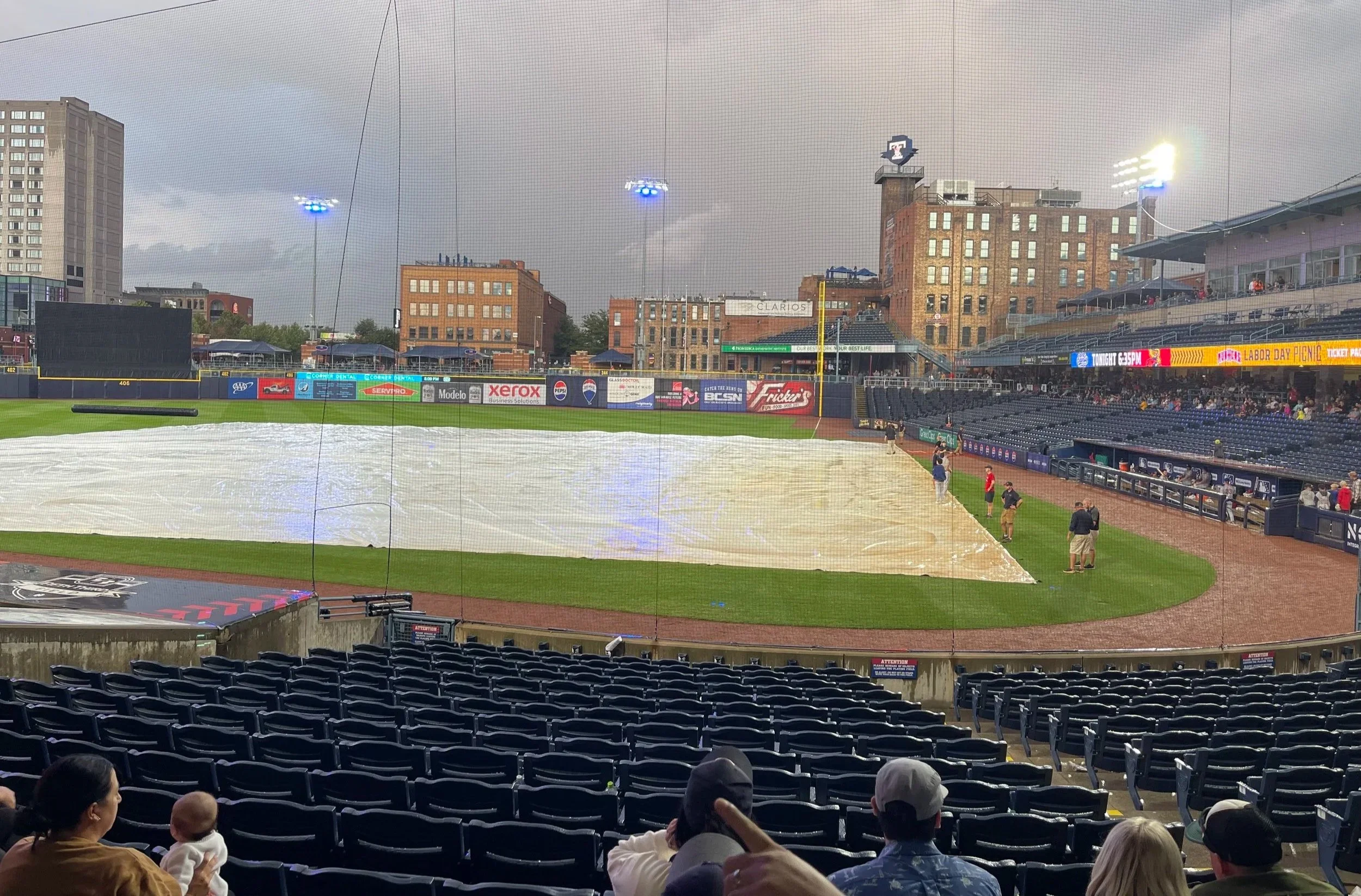
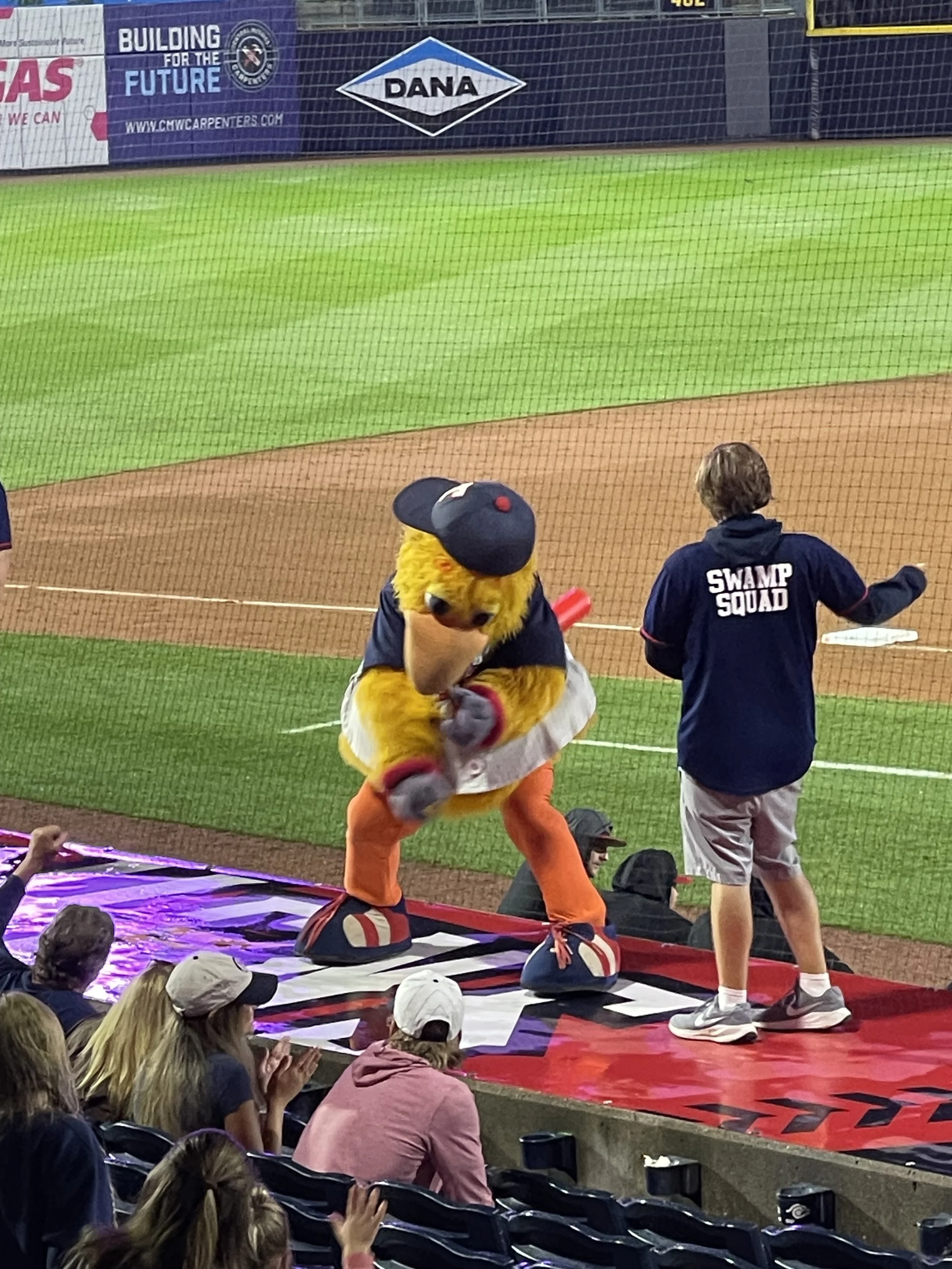
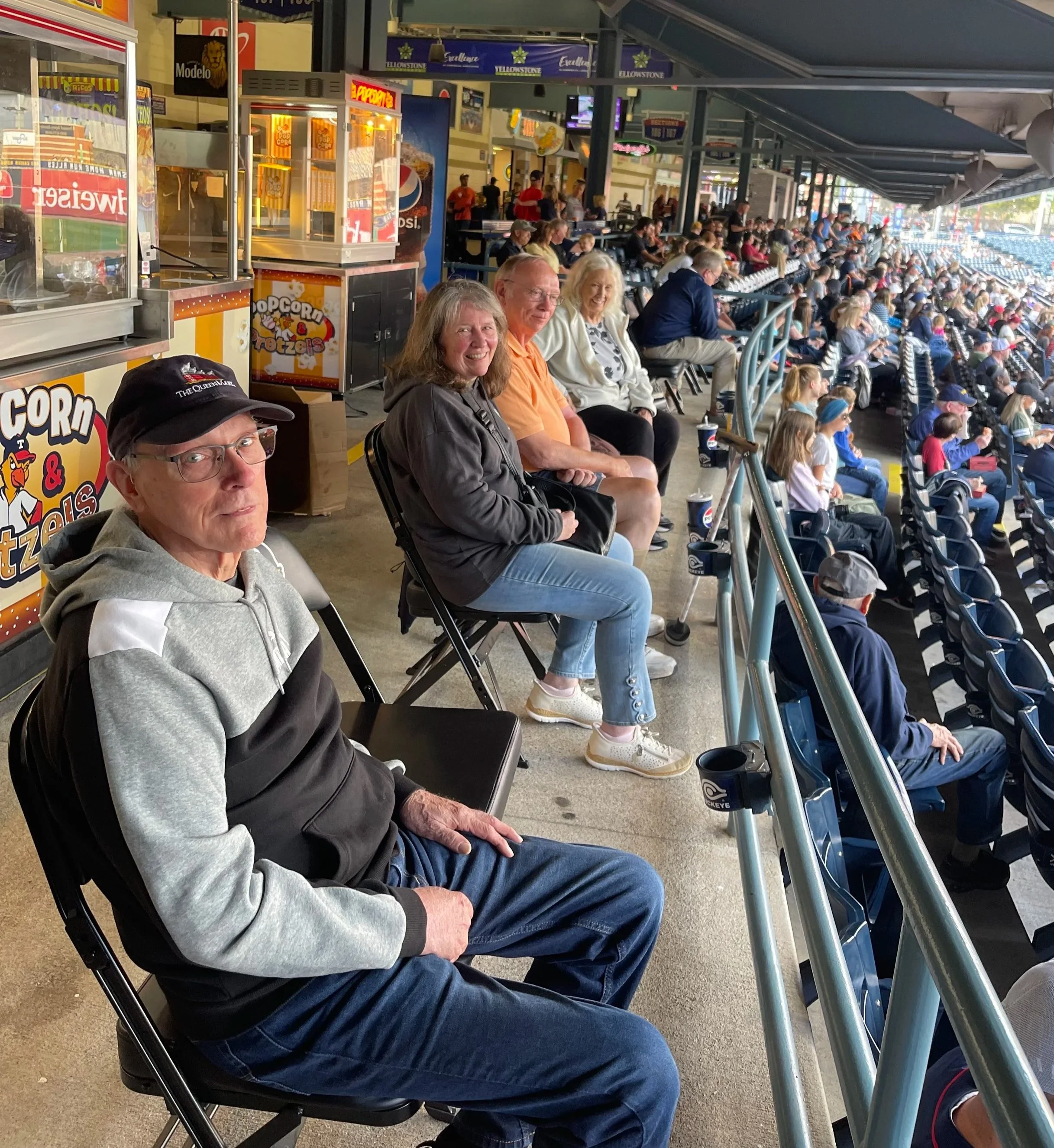
Creativity in Action: Decorative Boxes in Art Therapy
This month in art therapy, Stroke Life Center participants tapped into their creativity by making decorative boxes using tissue paper and Mod Podge. While the project may sound simple, the benefits went far beyond the craft table.
For stroke survivors, this activity provided an important way to practice fine motor skills—tearing, arranging, and brushing tissue paper helps strengthen hand coordination and dexterity. At the same time, making choices about colors and patterns stimulates the brain, encouraging problem-solving and creative expression. Perhaps most importantly, the process allows survivors to experience success in a tangible, beautiful way—boosting confidence and a sense of accomplishment.
For caregivers, the project offered something just as valuable: a chance to slow down and share in the joy of creating. Art therapy provides caregivers with meaningful time to relax, connect with others, and engage in an activity that reduces stress. A caregiver expressed how refreshing it was to step away from daily responsibilities and simply enjoy the act of making something together.
At the end of the session, each participant left with a one-of-a-kind decorative box—a small but powerful reminder that recovery is not only about rebuilding skills, but also about finding joy, expression, and connection along the way.
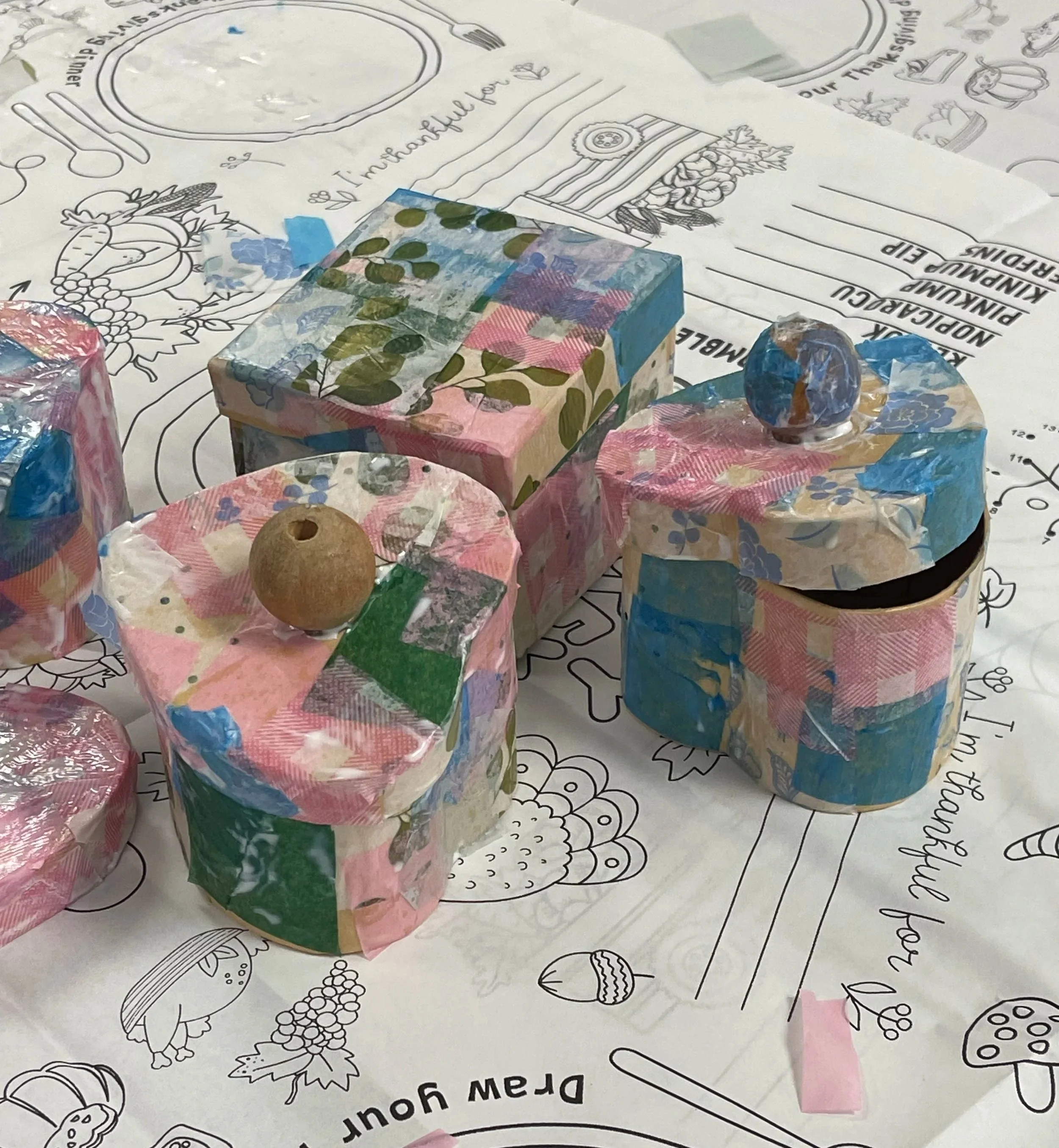
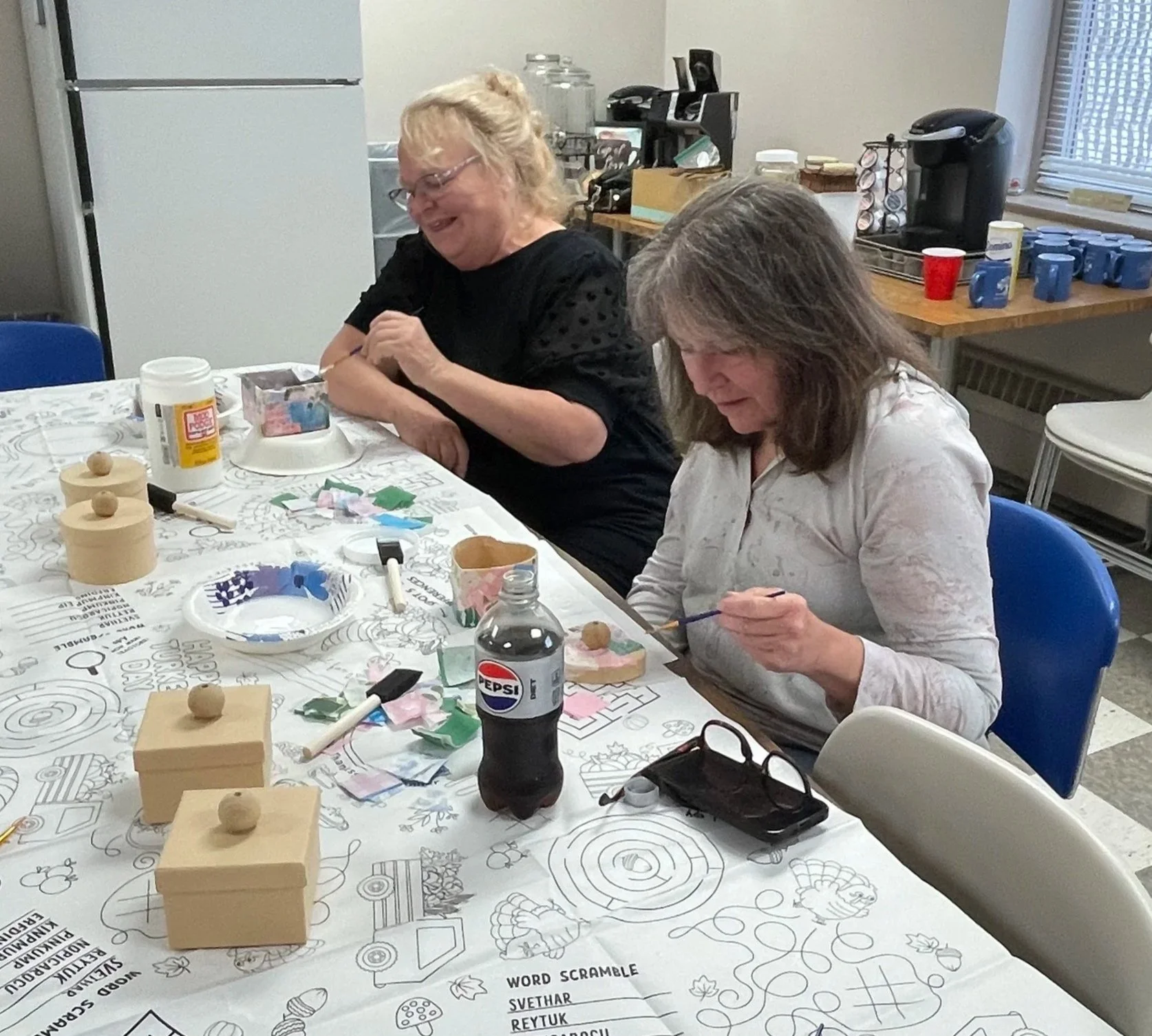
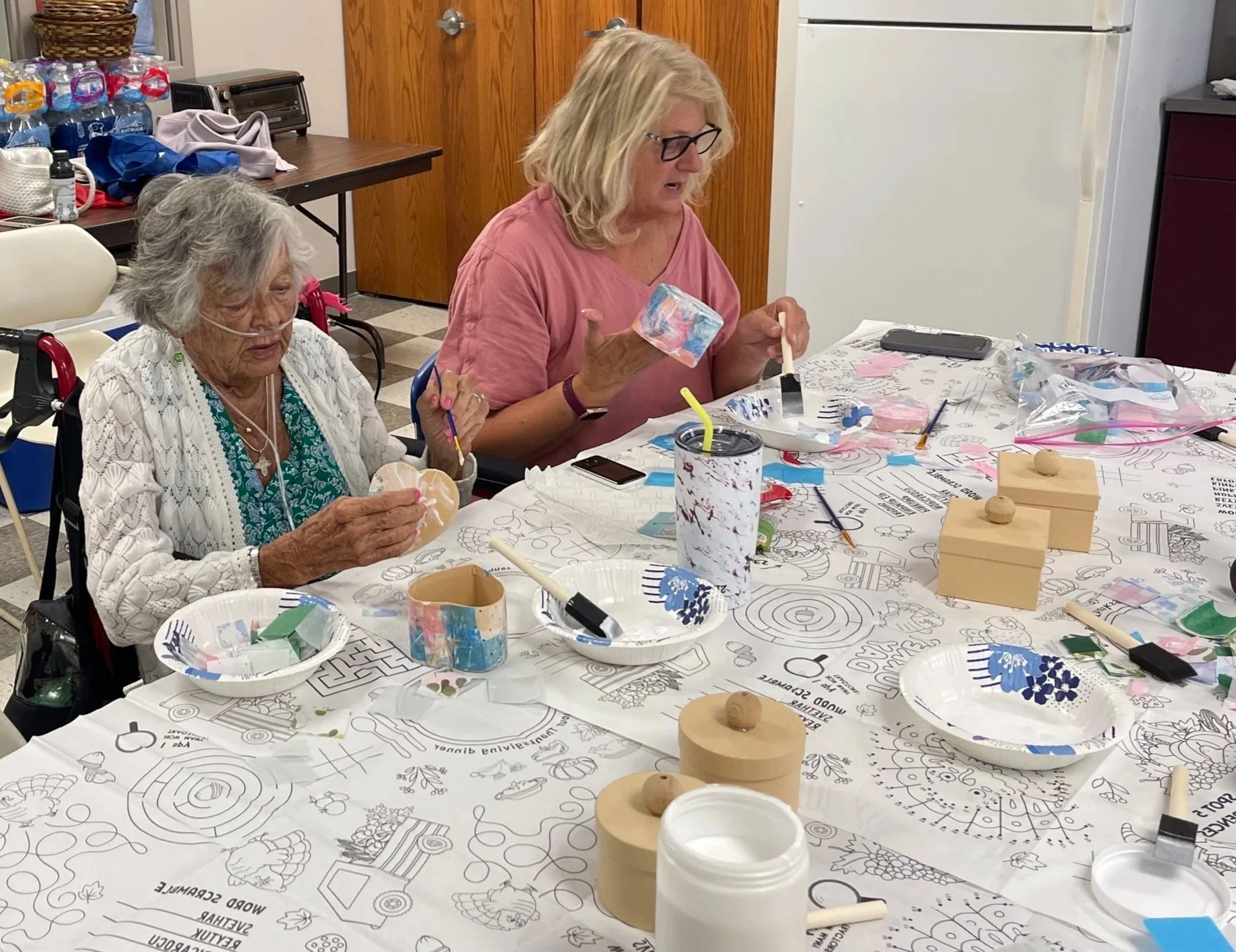
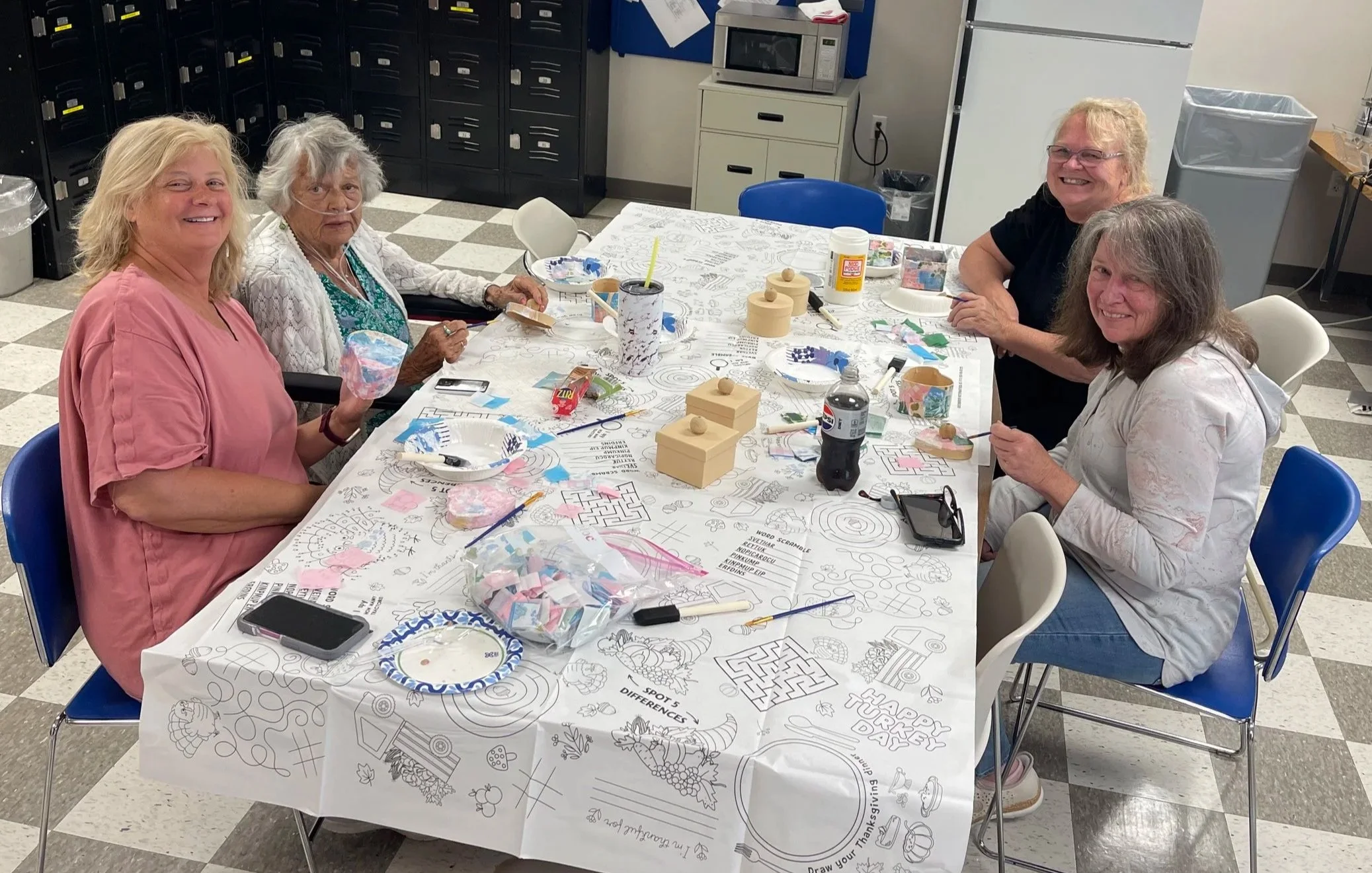
September’s Birthdays
Dolores Black 09-06
Sarah Pennington 09-08
Jerry Mudget 09-11
Ray Dyer 09-11
Dianne Masztak 09-17
MaryJo DeRaedt 09-20
Jan Baker 09-23
Dale Semeniw 09-24
Diane Varrone 09-26
Recipe of the Month: Sloppy Joe Smiles
At the Stroke Life Center, food often comes with a story—and this month’s recipe is one that had us all laughing.
During a support group, a caregiver complimented a survivor on what she thought were the best Sloppy Joes she had ever eaten. Curious about his “secret recipe,” she asked how he made them. With a smile, he said, “I’ll have to go home and ask my wife.”
The following week, he returned to group, proudly holding up the answer: a single can of Manwich Bold Sloppy Joe Sauce. That moment sparked laughter all around and reminded us of a simple truth—sometimes the best things in life don’t need to be complicated.
The Recipe (Simple, Bold, and Straight from the Can)
1 (16 oz) can Manwich Bold Sloppy Joe Sauce
1 pound ground beef
1 pack of 8 hamburger buns
Directions:
Cook 1 pound of ground beef thoroughly.
Stir in the can of Manwich sauce.
From this moment forward, request that everyone refer to you as “Chef.”
Serve on hamburger buns, dig in, and leave hunger behind.
More Than Just a Meal
This lighthearted recipe reminds us that joy is often found in the simplest of places. It isn’t the gourmet dishes or fancy techniques that make life meaningful—it’s the laughter, the stories, and the shared meals that bring us together.
At the Stroke Life Center, we celebrate these everyday moments. Because sometimes all it takes is a can of Sloppy Joe mix, a group of friends, and a good chuckle to fill both your belly and your heart.
2200 Jefferson Ave, 4-A OMOM Wing
Toledo, OH 43604
410-800-5433
www.strokelifecenter.org

